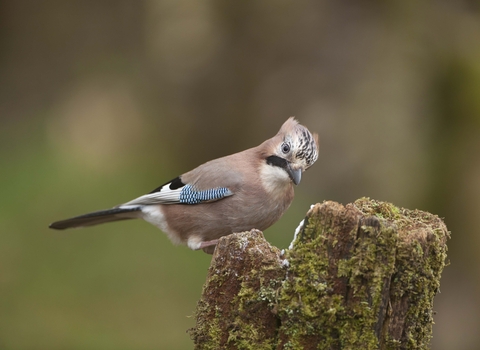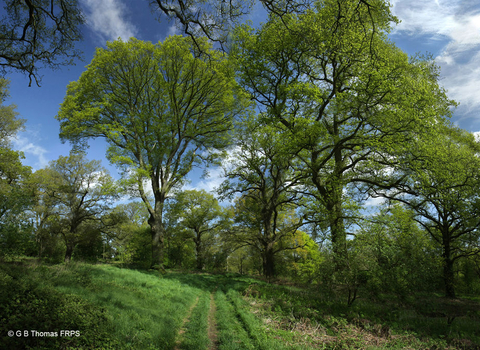
©Mark Hamblin/2020VISION
Jay
The jay is a colourful member of the crow family, with brilliant blue wing patches. It is famous for searching out acorns in autumnal woodlands and parks, often storing them for the winter ahead.
Scientific name
Garrulus glandariusWhen to see
January to DecemberSpecies information
Category
Statistics
Length: 34cmWingspan: 55cm
Weight: 170g
Average lifespan: 4 years
Classified in the UK as Green under the Birds of Conservation Concern 5: the Red List for Birds (2021). Protected in the UK under the Wildlife and Countryside Act, 1981.
About
The jay is a brightly coloured crow that can be found in woodland, parks and gardens. Surprisingly shy, its screaming call is most likely to be heard as it flies between trees - watch out for a flash of a bright white rump. Jays eat invertebrates, especially caterpillars and beetles, and are famous for enjoying acorns (and other nuts and fruits) during the autumn; they will also cache their finds for later. Jays are present all year-round, but are most obvious in autumn when they have to move about in the open more often, looking for food.How to identify
A brightly coloured crow, the jay is unmistakeable. It is mainly pinkish-buff, with a black tail, white rump, black 'moustache', and black-and-white wings that sport a brilliant blue patch.Distribution
Widespread, but absent from the north of Scotland.In our area
Jays are often spotted at Granville Country Park, Earl's Hill and Brook Vessons nature reserves.
Did you know?
The acorns that jays collect and bury in the autumn ready for the winter ahead, often get forgotten, growing into oak saplings and eventually trees.Watch
Jay (https://vimeo.com/447450082)
Jay by John Bridges
Jays are often spotted at Granville Country Park, Earl's Hill and Brook Vessons nature reserves.

